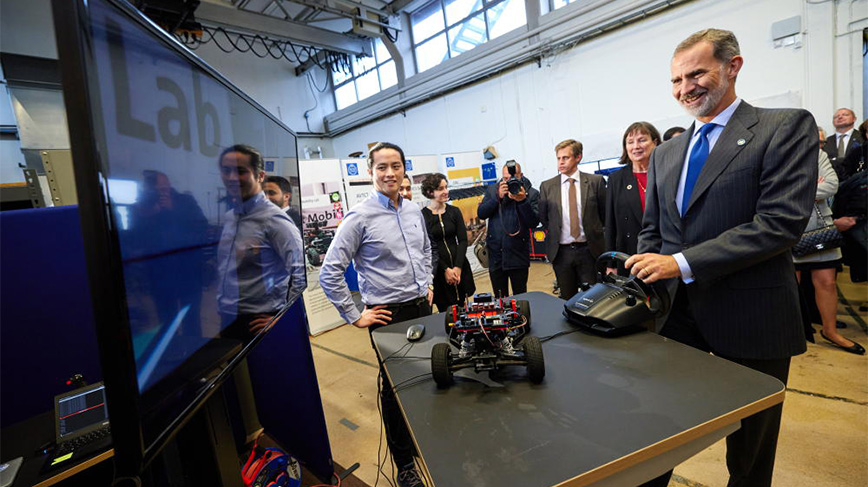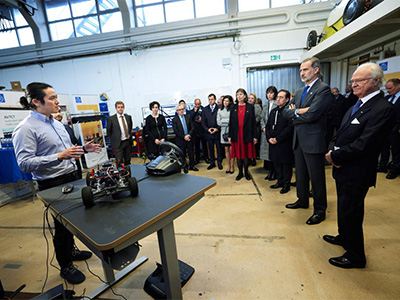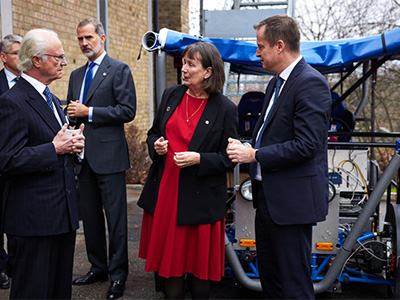Focus on transport during Spanish royal visit

The kings of Sweden and Spain were given a taste of KTH research into sustainable transport of the future during a visit to KTH and its Integrated Transport Research Lab (ITRL).
“The visit can be viewed as evidence of KTH’s long-standing and successful collaboration with Spanish universities within both research and education,” says KTH President Sigbritt Karlsson.

Around 70 people visited KTH on the morning of 25 November. Swedish Minister for Energy and Digital Development Anders Ygeman, plus representatives from the Swedish and Spanish enterprise sectors, accompanied the royal party. The visit to KTH was one of the items on the agenda during the two-day Spanish state visit.
“It is especially pleasurable for us to be given the opportunity to demonstrate one of our strong research areas and hopefully, the visit can inspire new areas of collaboration” says Karlsson.
Transition of the transport system
Following welcome speeches the programme included a panel discussion.
Erik Ekudden, CTO at Ericsson, Camilla Dewoon, CCO, Oscar Pallarols Innovation & Product Strategy Director at Cellnex Telecom, and Luis Moreno, General Director of CTAG, offered different perspectives on the transformation of the transport system and its challenges regarding infrastructure, safety and how self-driving vehicles can travel through Europe with different systems in each country.
“EU and global collaboration is needed between ICT and key industry companies and academia, to make a difference in different industries’ digitalization: ICT needs to satisfy the needs of industries, and the industries need to use the new opportunities and capabilities of e.g. 5G. In transforming transportation, we work with Scania and KTH in a number of projects, and complement those with other projects on EU level", says Erik Ekudden.
Luis Moreno pointed out the key technologies for future mobility such as AI, autonomous vehicles, alternative powertrains, big data, 5G connected vehicles, Internet of Things and 5G.
The panelists completely agreed that the way forward for future sustainable transports is collaboration.
Demonstrating safety system

The group then proceeded to ITRL for a demonstration of remote control safety systems for self-driving cars. The system has been developed by Frank Jiang, a doctoral student at KTH.
ITRL Director Jonas Mårtensson, who gave a presentation of the research centre says:
“It is a great honour to be invited to present our research and it is a sign of how relevant it is. However, it was also an opportunity to demonstrate how successful and fruitful collaboration with large Swedish companies and other external parties can be. ITRL is a good example of this.”
Text: Jill Klackenberg
Photo: Fredrik Persson
